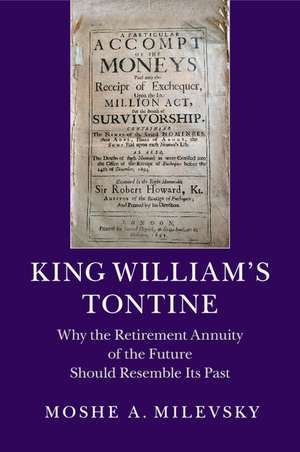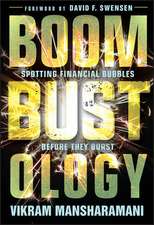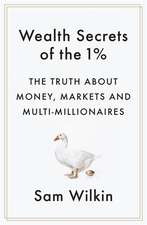King William's Tontine: Why the Retirement Annuity of the Future Should Resemble its Past
Autor Moshe A. Milevskyen Limba Engleză Paperback – noi 2017
| Toate formatele și edițiile | Preț | Express |
|---|---|---|
| Paperback (1) | 292.02 lei 6-8 săpt. | |
| Cambridge University Press – noi 2017 | 292.02 lei 6-8 săpt. | |
| Hardback (1) | 509.10 lei 6-8 săpt. | |
| Cambridge University Press – 12 apr 2015 | 509.10 lei 6-8 săpt. |
Preț: 292.02 lei
Nou
Puncte Express: 438
Preț estimativ în valută:
55.89€ • 58.13$ • 46.14£
55.89€ • 58.13$ • 46.14£
Carte tipărită la comandă
Livrare economică 14-28 aprilie
Preluare comenzi: 021 569.72.76
Specificații
ISBN-13: 9781107430754
ISBN-10: 1107430755
Pagini: 273
Ilustrații: 15 b/w illus.
Dimensiuni: 154 x 230 x 16 mm
Greutate: 0.4 kg
Editura: Cambridge University Press
Colecția Cambridge University Press
Locul publicării:New York, United States
ISBN-10: 1107430755
Pagini: 273
Ilustrații: 15 b/w illus.
Dimensiuni: 154 x 230 x 16 mm
Greutate: 0.4 kg
Editura: Cambridge University Press
Colecția Cambridge University Press
Locul publicării:New York, United States
Cuprins
1. King Billy, Protestant hero of England; 2. Tontine's economic origins: cheaper debt; 3. A most curious Will(iam) and older than you think; 4. The million act to fight a war against France; 5. Don't Englishmen die? Anti-selection vs fraud; 6. Is your tontine a stock or a bond?; 7. Optimal tontine: hedging (some) longevity risk; 8. Conclusion: tontines for the twenty-first century.
Recenzii
'King William's Tontine entertains and, by asking why retirees should not be paid handsomely for bearing a little actuarial risk, informs our response to the looming retirement crisis in a way that no other book does. It should be read - with pleasure - by anyone with a personal or policy interest in this vital area.' William J. Bernstein, CFA Institute Book Reviews
'King William's Tontine is an excellent read and a model for the clear exposition of a difficult and little-known subject. Financial history buffs will particularly enjoy the first half of the book, and economists interested in retirement finance will want to engage with the chapters in which the author presents his own proposal. This is a book that should grace the shelves of many libraries. Its proposals are definitely worthy of serious consideration by anyone or any institution concerned with retirement finance.' The Journal of Retirement
'This is a fascinating book. Perhaps a good sub-title would be 'Everything you wanted to know about tontines but were afraid to ask' … A well-written and well-paced read, I recommend it.' David Pollard, Trust Law International
'… clearly and patiently explained …' Richard Sutch, The Journal of Economic History
'When all is said and done King William's Tontine is a well‐written, exceptionally well researched, easily comprehendible, entertaining and insightful romp through the history of tontines. Policymakers, academics, actuaries, financial professionals, and students alike all can enjoy this Milevsky book, without the need for or burden of heavily detailed mathematical formulae and/or proofs - which certainly is a welcome, deep breath of fresh air lost in most academic works today. God save King Billy's tontine!' William L. Ferguson, The Journal of Risk and Insurance
'King William's Tontine is an excellent read and a model for the clear exposition of a difficult and little-known subject. Financial history buffs will particularly enjoy the first half of the book, and economists interested in retirement finance will want to engage with the chapters in which the author presents his own proposal. This is a book that should grace the shelves of many libraries. Its proposals are definitely worthy of serious consideration by anyone or any institution concerned with retirement finance.' The Journal of Retirement
'This is a fascinating book. Perhaps a good sub-title would be 'Everything you wanted to know about tontines but were afraid to ask' … A well-written and well-paced read, I recommend it.' David Pollard, Trust Law International
'… clearly and patiently explained …' Richard Sutch, The Journal of Economic History
'When all is said and done King William's Tontine is a well‐written, exceptionally well researched, easily comprehendible, entertaining and insightful romp through the history of tontines. Policymakers, academics, actuaries, financial professionals, and students alike all can enjoy this Milevsky book, without the need for or burden of heavily detailed mathematical formulae and/or proofs - which certainly is a welcome, deep breath of fresh air lost in most academic works today. God save King Billy's tontine!' William L. Ferguson, The Journal of Risk and Insurance
Notă biografică
Descriere
The book reviews the finance, economics, and history of tontines, and argues that they should be resurrected in the twenty-first century.

















